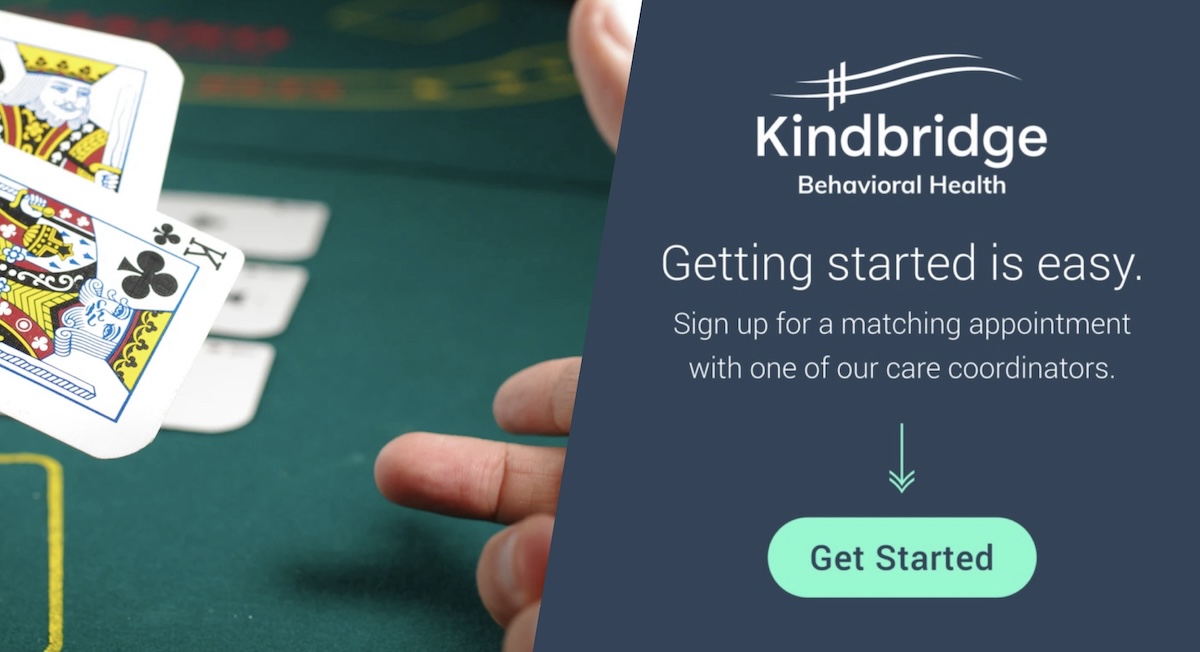Did casino security just send you packing, leaving your pride behind on the table with your chips? Unless you’ve been busted for counting cards or sliding dice, odds are that you were tossed for aggressive (or perception of aggressive) behavior. Verbally or physically hostile behavior is generally the manifestation of anger and irritability that comes with gambling for a certain segment of the population. Given that your current reaction was to come online and tell Google that you were “kicked out of a casino”, it’s logical to assume that you’re looking for insight into what happened. We’re glad that you did, as it’s an impetus for self-reflection that could prevent matters from getting worse. Please keep reading.
How Getting Kicked Out of a Casino Can Be the Best Thing for Your Mental and Behavioral Health
An Opportunity to Reassess Your Relationship with Gambling
When we stated (above) that the behavior that got you kicked out of a casino comes with gambling for a certain segment of the population, we were referring to those who have a problematic relationship with the activity.
Typically, anger and irritability are symptoms of the dopamine and serotonin crash that occurs when a compulsive gambler is not able participate. However, in some cases, these neurotransmitters can push buttons on the opposite side of the spectrum when a compulsive gambler is engaged in the act. Hypofunction (abnormally diminished function) of serotonin and hyperactive dopamine is a sign of gambling disorder (GD). Therefore, these “happy hormones” can also be ironically linked to aggressive behavior:
“Serotonergic hypofunction may contribute to the hyperactivity of the dopaminergic system, which further promotes impulsive and aggressive behaviors […] Dopamine hyperactivity may secondarily contribute to impulsive aggression, given the modulation of serotonin system over dopaminergic activity.“
Gambling Anger, Mood Swings, and Irritability
If that weren’t enough, a Vanderbilt University study has found that aggressive behavior triggers dopamine, which perpetuates a viscous cycle.
If you’re acting in a way that causes casino dealers, security, and/or nearby patrons to be concerned, and you’re not able to maintain a level head, you may be experiencing an hormonal imbalance that is related to GD. Understanding this presents you with an opportunity to reassess your relationship with the activity.
An Opportunity to Reflect on Cooccurring Concerns
This may be the first time you were kicked out of a casino, but have their been other behavioral issues in the past that have caught the attention of those around you? Has anyone called you out for being anxious, depressed, hyperactive, irritable, irrational, and/or moody? Do you suspect that this perception of you has kept coworkers, friends, and even family members from inviting you to gatherings and events? Has any of this occurred or increased with your involvement with gambling?
Pre-existing mental health issues such as depression, anxiety, obsessive compulsive disorder (OCD), bipolar disorder, schizophrenia, alcohol use disorder, and attention deficit hyperactivity disorder (ADHD) are known to cooccur with gambling disorder (GD). There are also other considerations that may infer some predisposition to GD, including a comorbid combination of age, genetics, and gender factors (learn more). And what about post traumatic stress disorder (PTSD)? That cooccurs with GD too.
Use the recent event regarding your behavior in a casino as an opportunity not only to reconsider your relationship with gambling, but to reflect on your mental health as a whole. From here, you’re in the clear to embark upon a journey to holistic wellness.
Next Steps
Take a Gambling Disorder Test
Let’s take a measured approach to moving forward. You can begin by completing our short gambling disorder test to assess where you stand:
Try Out Casino Alternatives
Regardless of the results of the GD quiz, we recommend taking a break from the casino. There are substitutes to gambling that provide for a healthy balance of dopamine / serotonin. Click the link below to discover the power of these alternatives:
Initiate a Confidential Conversation with a Counselor
The next step is the most important one to take on your journey to optimal wellness. Whether your problematic relationship with gambling is mild, moderate, or severe, or there are other underlying issues to hold responsible for your recent behavior, you need to talk to someone. Kindbridge is America’s leading counseling resource for behavioral health disorders, including problem gambling. Reach out to a Kindbridge care coordinator to schedule your session in a confidential, safe, and welcoming online environment.
Concerned About Your Gambling Habit or Other Behavioral Issues?
CALL +1 (877) 426-4258
OR


